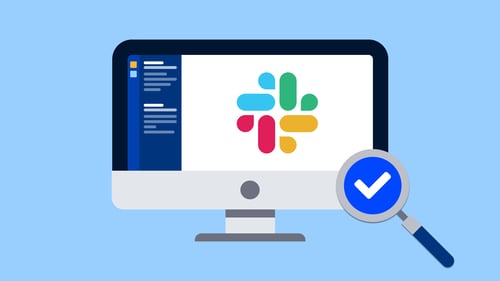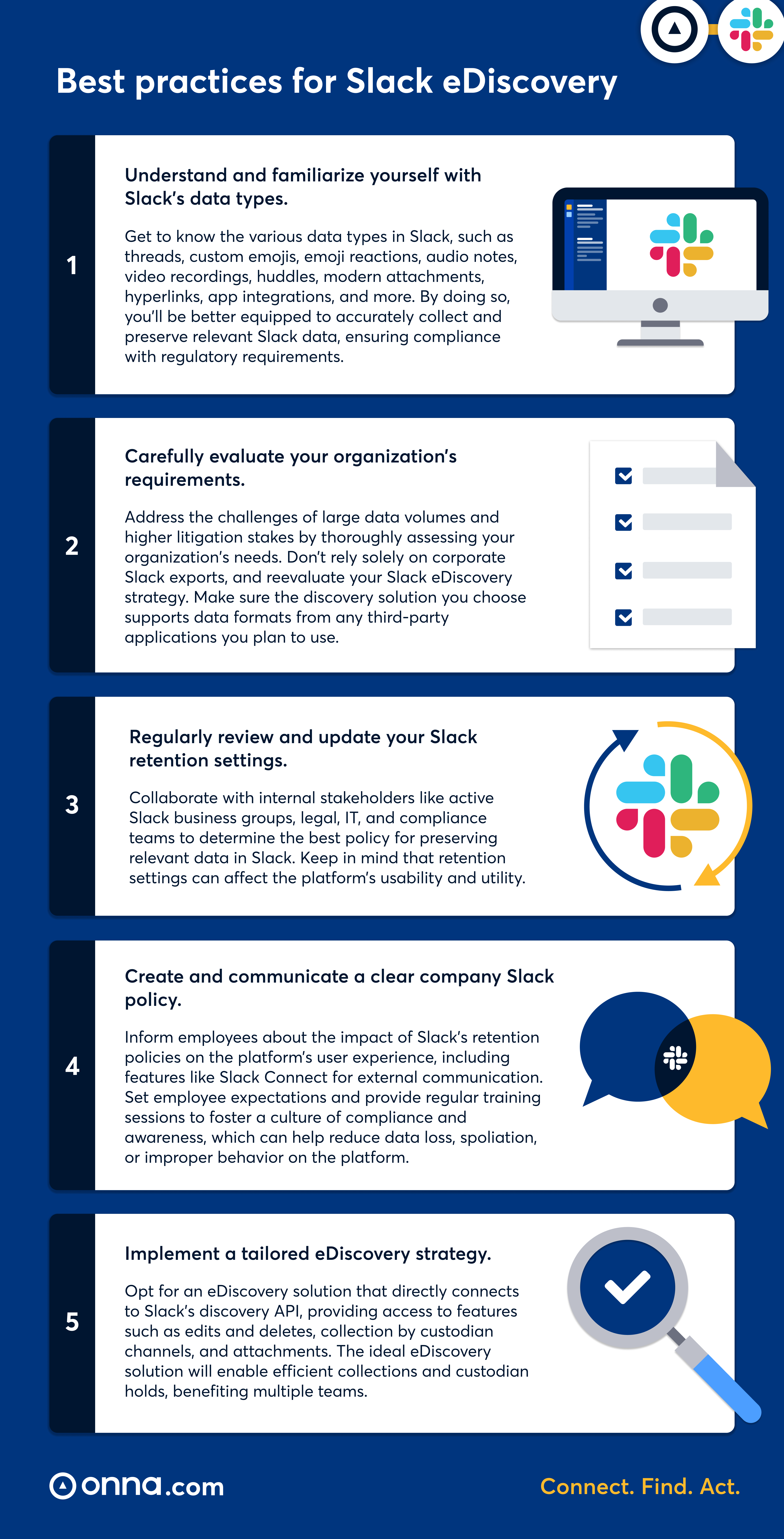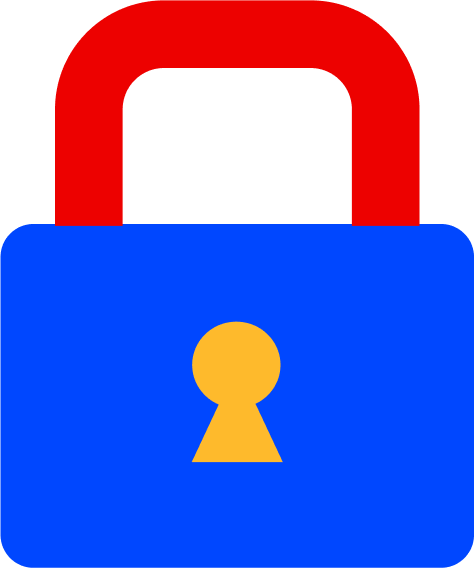eDiscovery for Slack best practices [Infographic]

As work becomes more fast-paced, dynamic, and complex, Slack has emerged as one of the most popular instant communication platforms for modern workplaces. Not only does Slack enable seamless file sharing and smooth third-party integrations, but it also redefines inter-organizational communication by replacing traditional email, allowing teams to collaborate effectively online just as they would in person, and bridging the gap between people and projects.
However, just as the legal industry had to quickly adapt to managing email and other electronic documents a few decades ago, eDiscovery practices must now evolve to address the challenges posed by business communications carried out through applications like Slack, which generate vast amounts of diverse data.
With Slack’s adoption skyrocketing to over 18 million users and counting, an increasing number of companies find themselves facing requests to collect and produce Slack data (and in some instances, sanctions for failing to provide it). Fortunately, adhering to a few simple Slack eDiscovery best practices can help you ensure that all relevant electronically stored information (ESI) is captured and preserved for future legal proceedings.
Watch the video:
This blog is based on one of our popular webinars and has been completely revamped and updated for accuracy and comprehensiveness. You can watch the video and download the slides below.
Best practices for Slack eDiscovery
A well-planned Slack eDiscovery strategy can help organizations avoid costly mistakes, improve efficiency, and ensure long-term success. To achieve this, consider these best practices:

Ideally, companies should face few instances of litigation and internal investigations throughout their life cycle. But if they do, it's important to consider the bigger picture when selecting an eDiscovery solution for Slack. Choose a solution that seamlessly integrates with Slack and other commonly used workplace applications, catering to both broad and specific requirements.
Transform the way you manage eDiscovery for Slack
In the realm of modern collaboration, it’s undeniable that organizations must update their discovery practices to include platforms like Slack. By adopting these best practices and selecting an eDiscovery solution that integrates seamlessly with Slack, your company can confidently address modern eDiscovery challenges and be well-prepared for any litigation or internal investigations.
At Onna, we embrace an open approach and actively drive collaborations and integrations to ensure our customers' preferred tools work seamlessly together. Organizations use Onna to easily identify, collect, preserve, and search data from various workplace applications, including Slack, all in one central location. Onna generates a searchable dataset that preserves the original format, simplifying the discovery process and boosting efficiency. By choosing a solution like Onna, your organization will significantly reduce review costs and eliminate the need for extra IT resources, establishing a strong foundation for skillfully managing the complexities of modern eDiscovery.
To learn more about our Slack integration, request a personalized demo today.
 eDiscovery
eDiscovery Collections
Collections Processing
Processing Early Case Assessment
Early Case Assessment Information Governance
Information Governance Data Migration
Data Migration Data Archiving
Data Archiving Platform Services
Platform Services Connectors
Connectors Platform API
Platform API Pricing Plans
Pricing Plans Professional Services
Professional Services Technical Support
Technical Support Partnerships
Partnerships About us
About us Careers
Careers Newsroom
Newsroom Reveal
Reveal Logikcull by Reveal
Logikcull by Reveal Events
Events Webinars
Webinars OnnAcademy
OnnAcademy Blog
Blog Content Library
Content Library Trust Center
Trust Center Developer Hub
Developer Hub